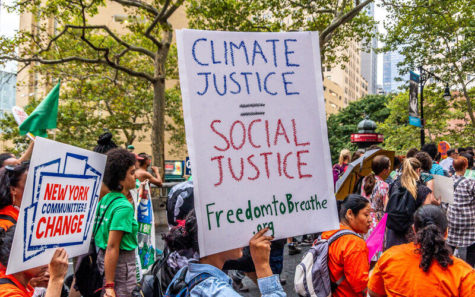ESG’s: Ethical consumerism and investing
February 8, 2023
As the health of our environment grows increasingly threatened, and social issues become progressively polarizing, it may be valuable to many to have the tools to be conscious of who they are buying from what they are investing in. Environmental, Social, and Governance [ESG] policies have become more frequently emplaced by businesses and companies across the past 5 years.
There are many tools that the average personal investor can use to research and gain a deeper understanding of the company to which they invest. To be an ‘Ethical Consumer’ it is important to know what and where your money is going towards. Similarly, to be a good investor, it is imperative that you know the ins and outs of not only the company that is being invested in but also its competition in that specific market.
So why are ESG ratings important? ESG ratings assess a business based on how ethical its actions are towards the environment, contributions to social issues, or participation in global events. In the past, businesses could hide in the unknown with misleading statistics, but with the revealing nature of social media and the devastatingly corrective nature of call-out culture, it has become more profitable for a business to be active in pursuing social justice.
Activists, like Greta Thunberg, have actively protested against businesses ignoring their environmental footprint. According to the World Economic Forum, a survey of 330 sustainability, energy, and resource experts, showed that 82% of businesses believe that their organization will be more committed to sustainability in 2020 compared to 2019, and of those, 41% mentioned Thunberg, as an inspirational figure.
LFA student Philip Kavu ‘24, an avid investor, explained how he is selective when investing into mineral resource companies because of both their environmental impact and social disregard.

Kavu said, “With today’s climate I just don’t think it’s right to invest in a lot of the companies that ignore the direction the climate is going… I’d feel guilty like it’d weigh on my conscience for sure. Also as an African, I pay close attention to the mining practices of any mineral resource company I invest in because many are very destructive and harmful to my culture.”
Recently, the positive impact that ESG ratings provide is at risk, as multiple states have begun taking action against it. Negative sentiments against the Green New Deal, or any fossil-fuel reform, have always existed, and it’s no different with ESG ratings– because of the attention the environmental section of ESG brings. Florida state Governor Rob DeSantis passed a resolution that instructs fund managers of Florida’s pensions to invest state funds without screening ESG criteria.
Rob Desantis explained clearly his disdain for ESG ratings. He said, “(ESG ratings are)…an attempt to impose through the economy, an ideological agenda that could not win at the ballot box.
Adding on, Arizona Republican Senate nominee, Blake Masters, dubbed ESG an existential threat to the American economy.
However, the value of ESG ratings has only continued to grow. Globally, ESG-focused institutional investments are expected to increase 84% from $18.4tn to $33.9tn. In the past five years ESG has evolved from something that was almost non-existent, to a major aspect of everyday investors research, and a valuable tool to any ethical consumer.















